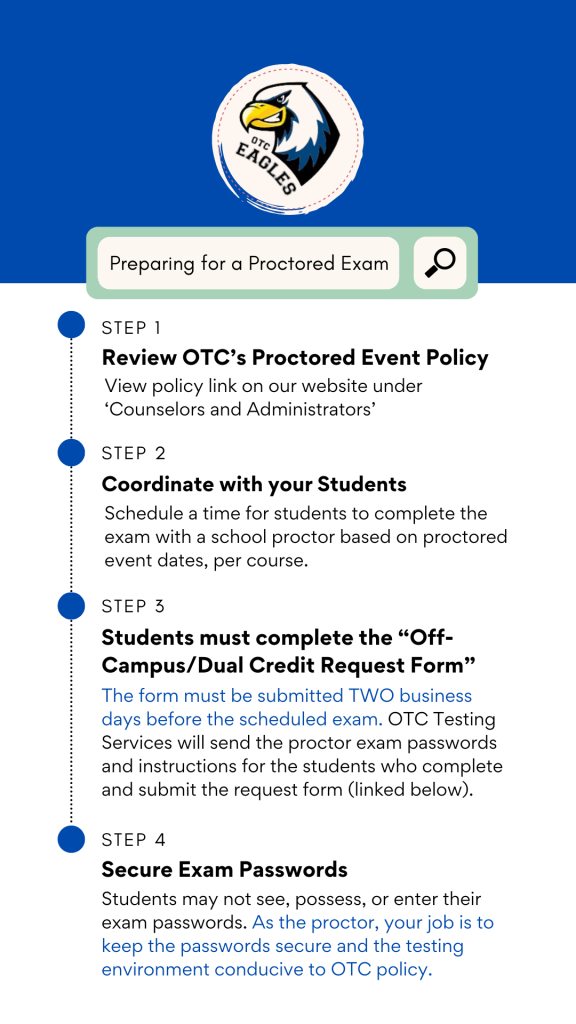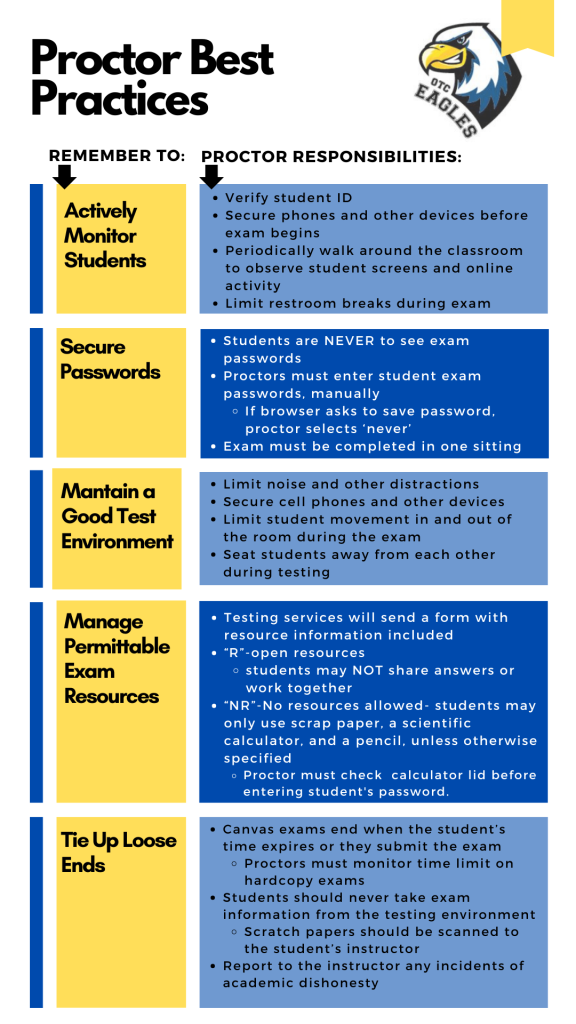Course Materials
No matter the course learning format, high schools determine if course materials are the student and family’s responsibility or if the school covers the course materials costs.
For seated courses, with an approved high school instructor, the course materials used at high schools are either the same as those course materials used on campus (see OTC Bookstore verbacompare hyperlink below) or those deemed equivalent by the course department chair. High school personnel are responsible for obtaining special permission from course department chair for use of other materials than those required of students on campus. The department chair can provide one copy of the on-campus course material to the approved high school instructor. Otherwise, depending on the course materials format, schools can determine if students will receive access to an individual copy of the course materials (recommended) or if students will have access to a classroom set of the course material.
For online courses, with an OTC instructor, students same course materials as those used by other students in online courses with OTC.
Course materials information is listed twice within the steps to enroll as well as accessible through the student’s myOTC account and on the OTC Bookstore page (see hyperlink below). Within the admission steps, students can see approximate costs of course materials by class within step four and the hyperlink to online class list for dual credit, and enrolled students can use step five Obtain Course Materials for further directions on how to see course material information within the student’s myOTC account.
Use the OTC Bookstore site to see course materials information: https://otc.verbacompare.com/ In the drop down, select Springfield & Online, the semester, enter course code information, and then Compare Prices button.
Learn more about OTC’s AutoAccess program, for any courses with “AutoAccess” listed.
For course materials, individually or as a bundle, questions about electronic course materials, or for school paid purchase options, please use your enrolled student roster to contact gotts@otc.edu


